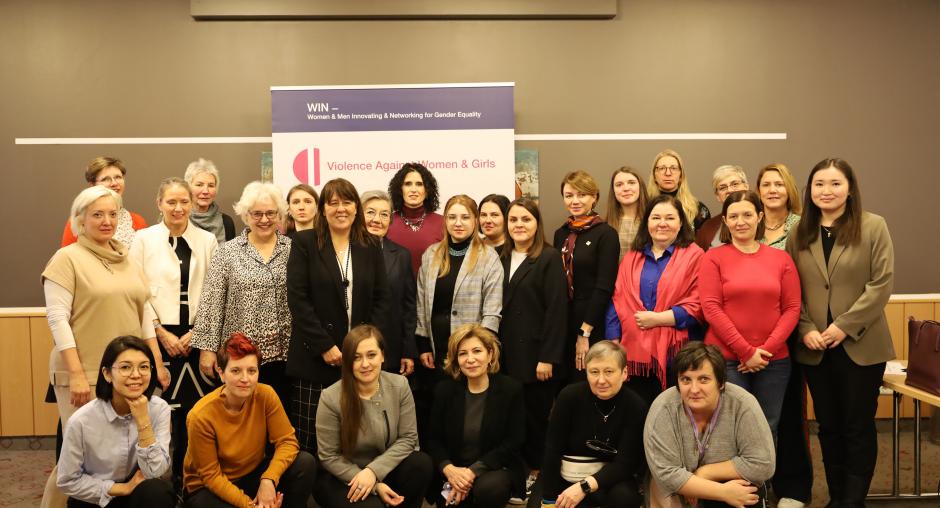OSCE brings together women activists from Bosnia and Herzegovina and Ukraine to discuss effective strategies to combat violence against women and girls in conflict and post-conflict settings

From 31 January to 2 February, 20 women human rights activists from Bosnia and Herzegovina and Ukraine, and renowned international experts, gathered in Vienna to provide concrete recommendations for enhancing protection and response to violence against women and girls in conflict and post-conflict settings.
OSCE Senior Adviser on Gender Issues Lara Scarpitta stressed the importance of women-led civil society organizations in her opening remarks. “Women should not be invisible. Women take an active part in addressing the consequences of war, are at the forefront of humanitarian responses and support the survivors of the violence like we see today in Ukraine and we saw many years ago in Bosnia and Herzegovina. They are and must be regarded as key counterparts and involved in decision-making processes,” she said.
The participants discussed accountability and the role of civil society organizations in supporting survivors of gender-based violence in armed conflict, based on the experience of participants from Bosnia and Herzegovina and other global practices.
Participants also discussed the implementation of the Council of Europe Convention on Preventing and Combating Violence against Women and Domestic Violence in the context of conflict and post-conflict settings and the role of the civil society organizations in this process.
Simona Lanzoni, Vice-President of the Council of Europe Expert Group on Action against Violence against Women and Domestic Violence (GREVIO), stressed that: "Istanbul Convention should be implemented by the state that ratified it in peacetime and also - as recalled in article 2 paragraph 3 - in situation of armed conflict. The provisions set a number of essential tools to enable women victims and survivors of all form of violence to get full protection and support in a safe and secure environment that should be provided by a multiagency work and continuos dialogue done between the state and the women civil society.”
The event, the second of its kind, is a part of the multi-year project WIN for Women and Men on strengthening comprehensive security through innovating and networking for gender equality.
